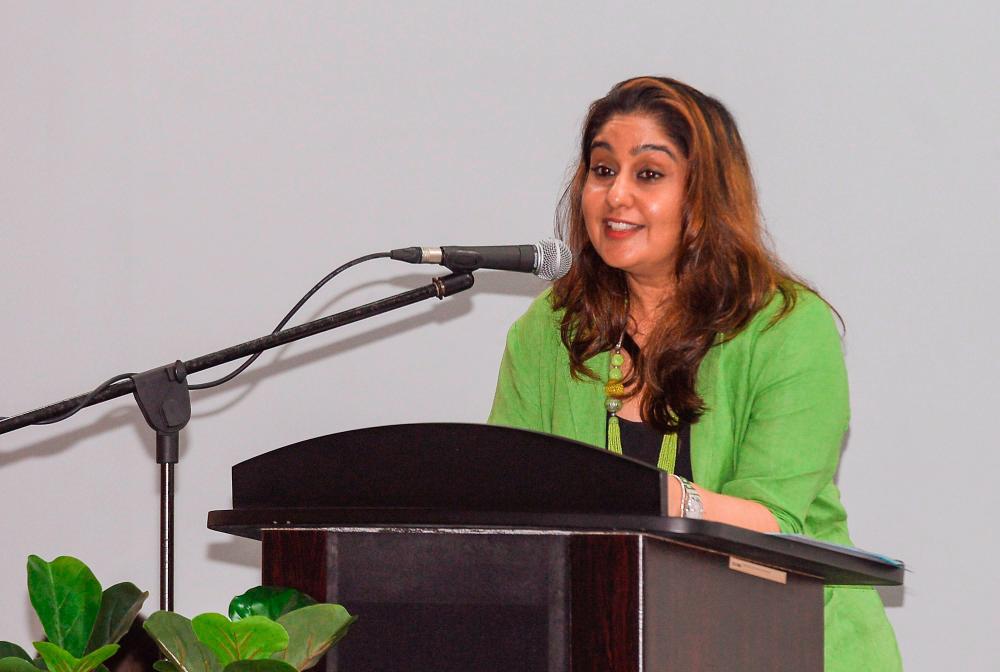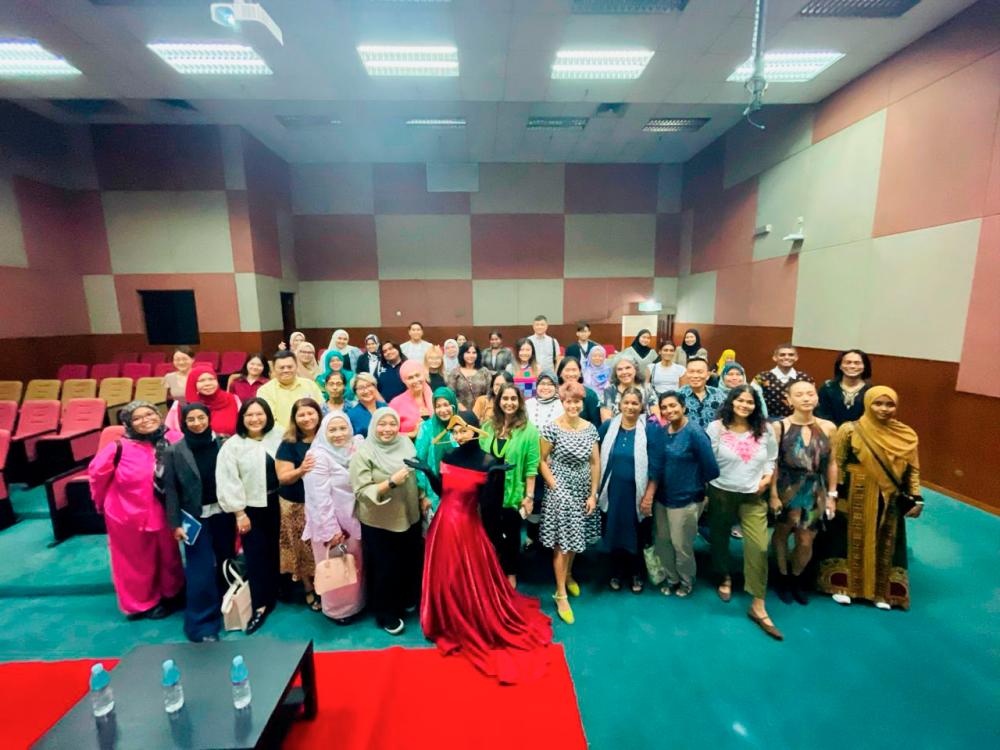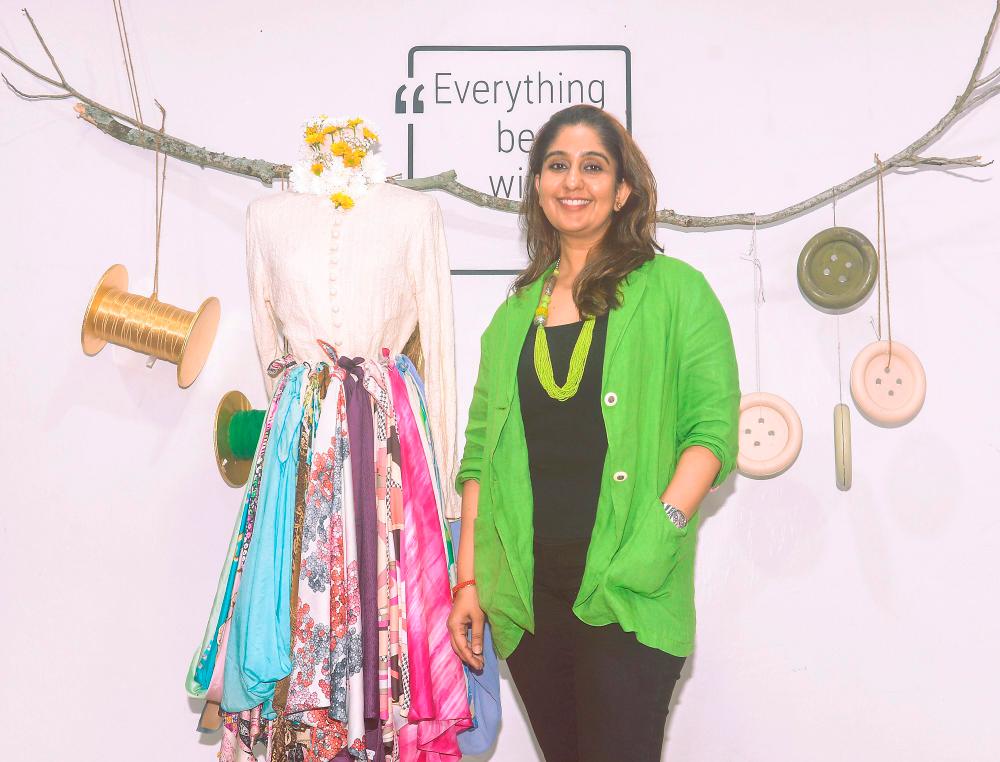In a world that prioritizes skills and competency as essential qualities for success, the fashion industry stands out as a fast-paced industry that is constantly evolving and challenging individuals to keep up.
Amidst the glitz and glamour, there exists a crucial aspect often overlooked – the art of sewing. The International Sewing School emerges as a transformative force, shattering the negative perceptions of this age-old skill and highlighting its paramount importance in the journey to becoming a successful fashion designer.
To know more about it, theSun spoke with Kalpana Singh, the visionary founder of The International Sewing School and also CEO of Design Studio Sdn Bhd, where she shed light on the school’s groundbreaking approach to education, dispelling stereotypes associated with vocational training.
Highlighting the inseparable link between fashion design and sewing, Kalpana said, “A fashion designer must know how to sew... not only know about designing clothes but [also] sew and patent the clothes they design.”

Addressing the misconception that sewing is an easily acquired skill, Kalpana underscored the importance of mastering the basics, making it clear that sewing is an integral component of Technical and Vocational Education and Training (TVET) accessible to individuals from all backgrounds.
“I myself am a graduate of the field from a leading college in India. Then became a fashion designer in various companies and industries including designing bags and shoes before opening a sewing training centre.”
“Nowadays, everyone must have skills and sewing is one of them. Imagine in a situation where people who have a career suddenly lose their job, with their skills they can start again,“ She added.
In the meantime, Kalpana also told that she took the initiative to open a sewing training center as an opportunity for those interested in learning and building a portfolio.
“Since it was established in 2011, thousands of skilled workers have been born from the institute, including famous fashion designers such as Juita Jalil and also famous actress, Dini Schatzmann.
“The International Sewing School offers level one to three sewing courses recognized by the Malaysian Skills Certificate (SKM). Level one and two admissions start this July and level three in January next year,“ he said.
Kalpana’s initiative to establish a sewing training centre stems from her belief in providing opportunities for individuals interested in learning and building a portfolio, contributing to a society where diverse skills are valued.
Besides that, vocational schools are frequently burdened by stereotypes, often seen as the final option for those perceived as academically weaker. Nevertheless, at The International Sewing School, the faculty actively challenges this stereotype.
Kalpana, who founded the institution in 2011, noted that the school’s approach is in line with the changing educational environment and an effort is made to dispel the prejudicial beliefs associated with vocational education.
“Just as major universities offer micro-qualifications, we provide focused training. Our graduates emerge as well-rounded dressmakers, ready to excel in the fashion industry.
Notably, the school offers Malaysian Skills Certificate (SKM) certification up to Level 3, alongside internationally recognized certifications from the United Kingdom and Greece.
One of the initiatives spearheaded by Kalpana to enhance awareness and collaboration within the fashion sector was organizing a seminar titled “Sustainability in Fashion” at UITM Shah Alam through The International Sewing School.

Seminar of ‘Sustainability in Fashion’ by International Sewing School at UITM Shah Alam campus.
The seminar brought together industry leaders and pioneers, fostering initiatives for collective learning and community ties while working towards a more environmentally conscious and sustainable future for the fashion industry.
“Participants learn about the environmental impact of fashion, the importance of ethical sourcing and how small changes can lead to significant transformation. They also learn from experience and success stories from established companies,” she said.
Kalpana went on to say, “We believe that education plays an important role in shaping the industry. By emphasizing sustainability in the curriculum, we empower students to be
Change-makers.”









